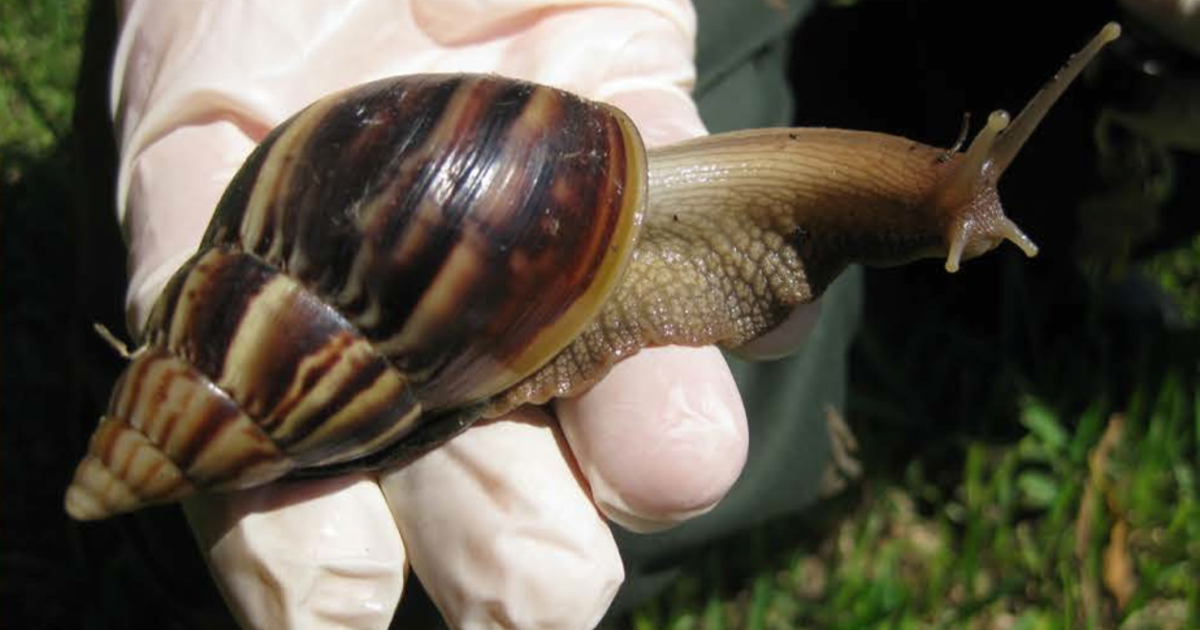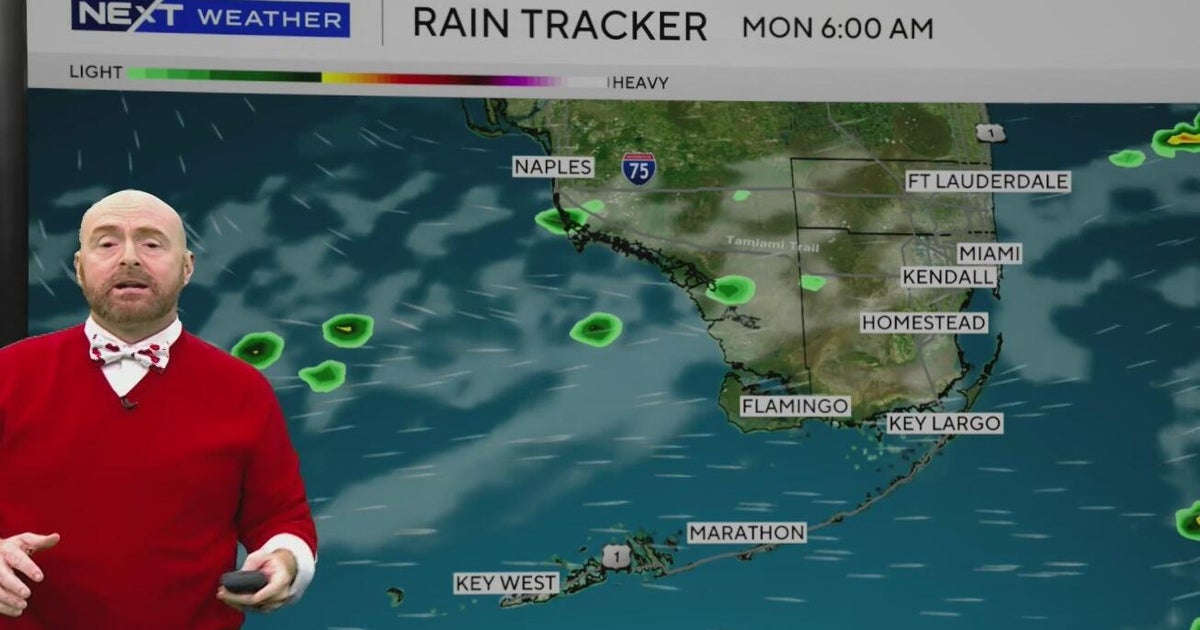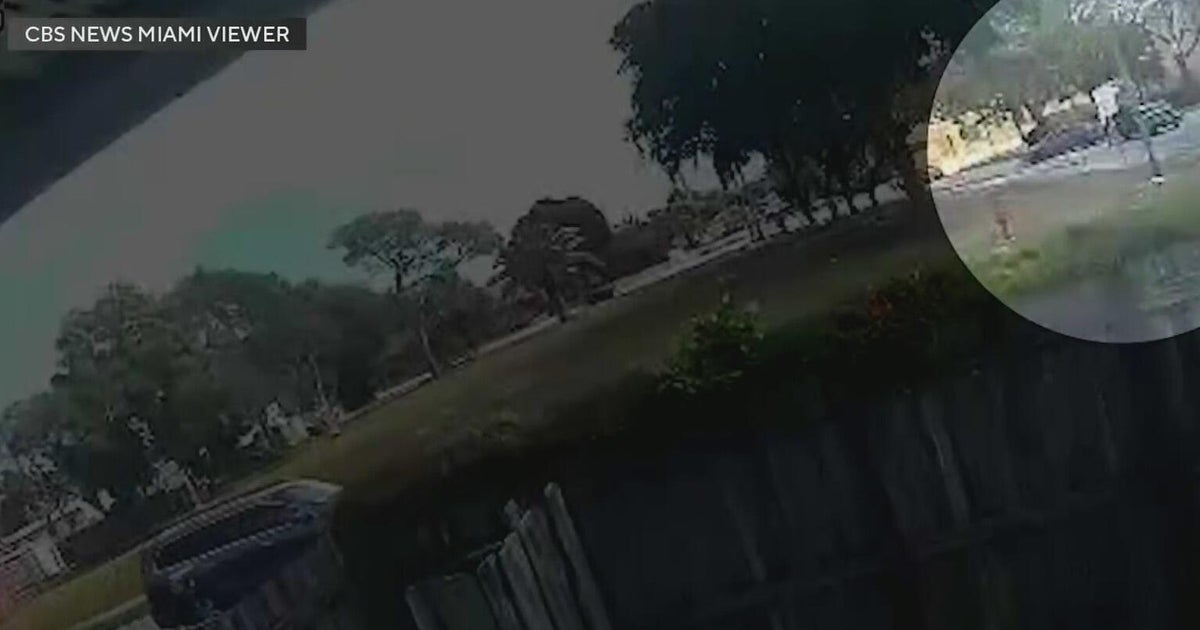MIAMI – A quarantine zone has been proven in a portion of southern Broward and northern Miami-Dade to contain the distribute of huge African land snails, the state Office of Agriculture and Customers Products and services announced Tuesday.
“Under the quarantine, it is unlawful to transfer a giant African land snail or a controlled post, like, but not confined to, crops, plant pieces, vegetation in soil, soil, property waste, particles, compost or setting up supplies, within just, by or from the outlined quarantine region without the need of a compliance settlement,” according to the assertion.
A giant African land snail was verified in Miramar on June 2nd. The snails, which grow as prolonged as 8 inches, have a distinct whirled, brown-mottled shell. They can deliver up to 2,500 eggs a year.
The quarantine region is bounded by Pembroke Road to the north, SW 62nd Avenue to the east, NW 215th Road in Miami-Dade to the south, and South College Drive to the west.
The agriculture department will treat qualities with a metaldehyde-centered molluscicide (snail bait). In accordance to the section:
“Metaldehyde operates by disrupting the mucus output capability of snails and slugs. This lowers their digestion and mobility and tends to make them vulnerable to dehydration. Snails and slugs that have eaten metaldehyde generally seek out hiding spots, come to be inactive and commence to die within times.”
Initially from East Africa, the snails pose threats to components of the agriculture field and human health.
The agriculture section claimed the snails consume at minimum 500 diverse varieties of vegetation and consume plaster and stucco off properties.
Large African land snails pose a significant overall health risk to human beings by carrying the parasite rat lungworm, recognised to bring about meningitis in humans. The snails need to not be dealt with without right safety and sanitation.
They have been eradicated twice in Florida. The very first detection was in 1969 and was eradicated in 1975. Most lately a 10-calendar year energy in Miami-Dade County, which price $23 million, finished in 2021 just after the assortment of about 170,000 snails.




